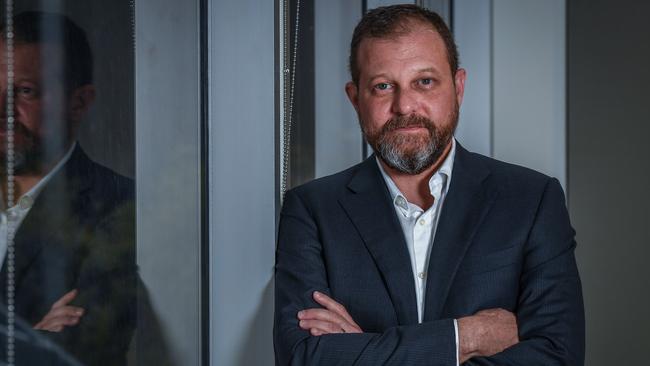Litigation funder Omni Bridgeway backs separate legislation
The head of the nation’s largest litigation funder has put his support behind separate legislation to regulate the industry.

The head of the nation’s largest litigation funder says separate legislation regulating the industry could be an acceptable alternative to the managed investment scheme rules that will apply to the industry from next month.
From August Australia’s 33 litigation funders will be hit by new rules from Treasury that require them to hold an Australian financial services licence and comply with managed investment scheme rules as the government removes the industry’s exemptions from the Corporations Act that have been in place since 2017.
Andrew Saker, the managing director and CEO of listed litigation funder Omni Bridgeway, told the joint parliamentary committee on corporations and financial services inquiry into litigation funding on Monday that he agreed with the government that litigation funders needed to hold a financial services licence because it “improves transparency”.
However, he said he had reservations over having to comply with managed investment scheme rules, including doubts over exactly how scheme property would be defined and valued, how to wind up a scheme at the end of an investment, the potential conflict between AFCA and the court in resolving disputes and rules governing constitution and voting mechanisms.
“As long as it (alternative legislation) achieves the same outcome, which is regulation of the industry in Australia … we would be in favour of that,” Mr Saker said.
The litigation funding industry has come under sustained pressure from critics for siphoning court resources with protracted litigation and for denying justice to the plaintiffs whose cases it funds by taking larger and larger amounts of the settlement pool for themselves.
Mr Saker denied Omni Bridgeway indulged in such practices but endorsed a number of regulations that would govern these issues, including mandating a minimum 50 per cent return of gross proceeds to class action members and the removal of common fund orders, which allow respondents to be added to a class action on an opt-out basis.
Mr Saker said Omni Bridgeway returned “approximately” 60 per cent of settlements to plaintiffs, with their funder fee comprising 25 per cent of settlement and legal costs 15 per cent.
He said claims by the Menzies Research Centre in their submission to the inquiry were “just ill-founded analysis”. The conservative think tank claimed that last year the average share of a settlement paid to plaintiffs across class action firms was 39 per cent, citing law firm Herbert Smith Freehills as their source.
“The figure isn‘t correct,” Mr Saker said, adding that after submissions were made a response was received from Herbert Smith Freehills saying the figure was drawn ”only from public information”.
Mr Saker also hit back at a suggestion by law firm King Kings & Wood Mallesons to the joint parliamentary inquiry into litigation funding that Australia needed a certification process for class actions, saying existing checks and balances were sufficient.



To join the conversation, please log in. Don't have an account? Register
Join the conversation, you are commenting as Logout